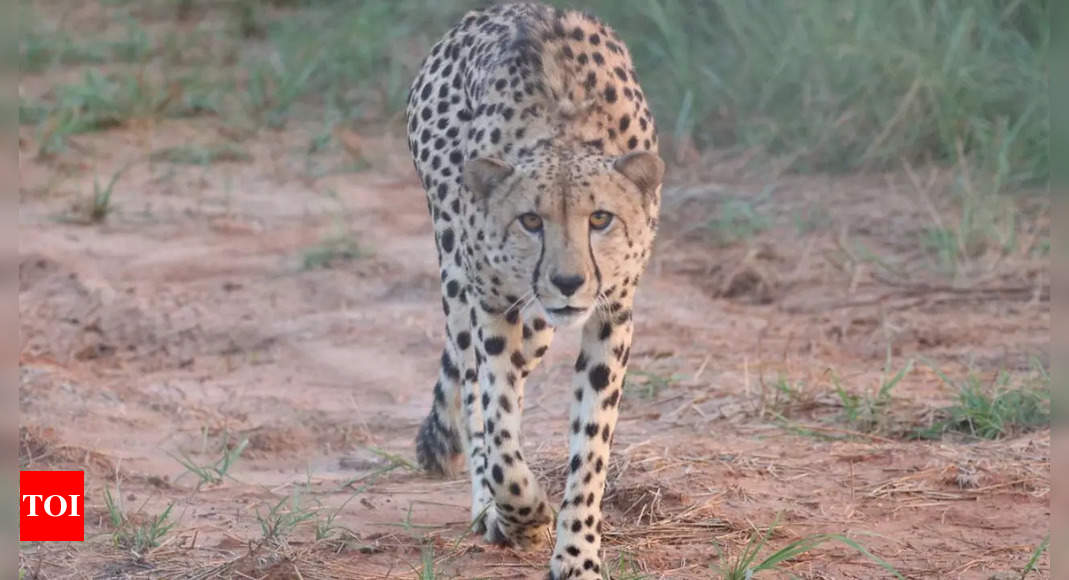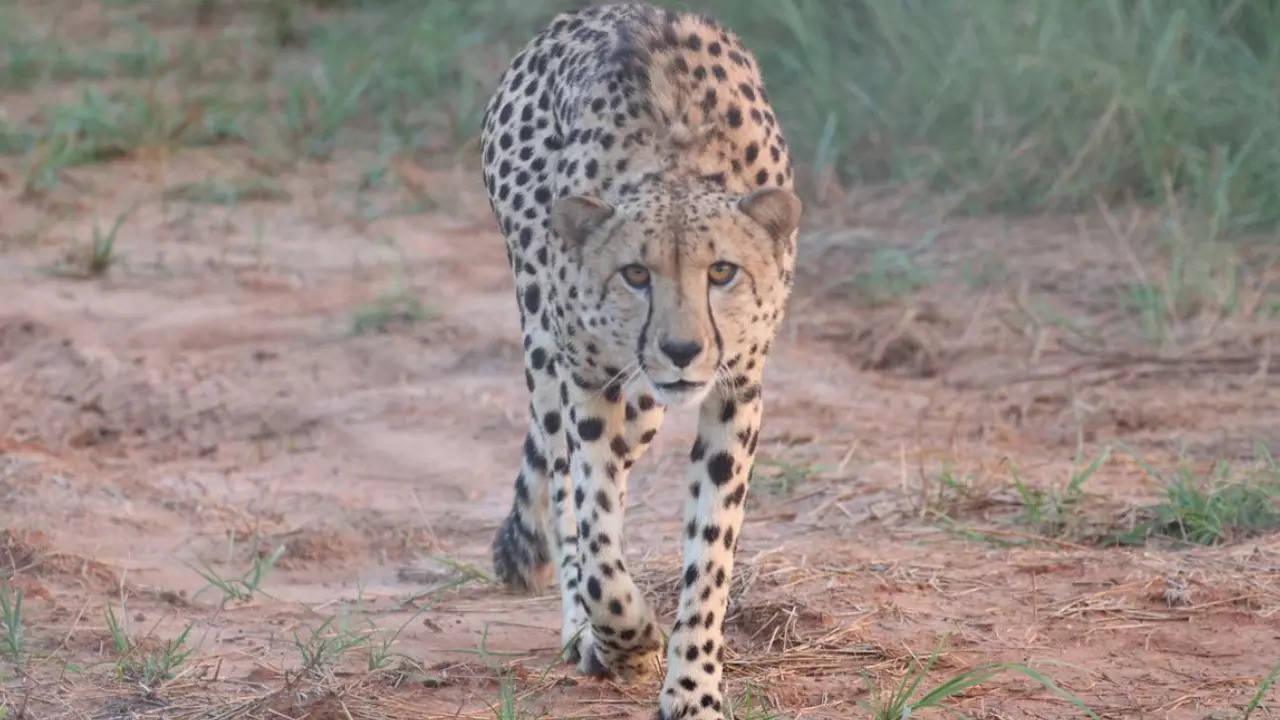[ad_1]
NEW DELHI: Amid deaths of eight cheetahs, including three cubs born on Indian soil, in Kuno National Park in Madhya Pradesh in the past four months, the environment ministry on Sunday said Project Cheetah is yet to complete a year and it will be premature to conclude the outcome in terms of success and failure since cheetah introduction is a long-term project. It said it is optimistic that the project will succeed in the long run and there is no reason to speculate at this juncture.
The ministry said as per the preliminary analysis, done by the National Tiger Conservation Authority (NTCA), all five adult mortalities were “due to natural causes”.
“There are reports in the media attributing these cheetah deaths to other reasons, including their radio collars etc. Such reports are not based on any scientific evidence but are speculation and hearsay,” said the ministry in a statement. The NTCA is the apex body entrusted with the implementation of Project Cheetah.
Referring to global experience with cheetah translocation to new habitats, the ministry said that cheetah has been brought back to India after seven decades and a project of such a stature is bound to undergo ups and downs.
“Global experience, particularly from South Africa, suggests that the initial phase of reintroduction of cheetah in African countries has resulted in more than 50% mortality of introduced cheetahs. The mortality of cheetah may happen due to intra-species fights, diseases, accidents before release and post release. Mortalities might also result from injury caused during hunting of prey, poaching, road hits, poisoning and predatory attack by other predators etc.,” said the ministry.
Under Project Cheetah, a total of 20 radio collared cheetahs were imported from Namibia and South Africa to Kuno National Park, in a first ever transcontinental wild-to-wild translocation. After the mandatory quarantine period, all cheetahs were shifted to larger acclimatisation enclosures. Currently, 11 cheetahs are under free ranging condition and five animals, including a cub born on Indian soil, are within quarantine enclosure.
“The Cheetah Project Steering Committee is closely monitoring the project and has expressed satisfaction over its implementation so far…Each of the free ranging cheetahs is being monitored round the clock by a dedicated monitoring team,” said the ministry.
The ministry said as per the preliminary analysis, done by the National Tiger Conservation Authority (NTCA), all five adult mortalities were “due to natural causes”.
“There are reports in the media attributing these cheetah deaths to other reasons, including their radio collars etc. Such reports are not based on any scientific evidence but are speculation and hearsay,” said the ministry in a statement. The NTCA is the apex body entrusted with the implementation of Project Cheetah.
Referring to global experience with cheetah translocation to new habitats, the ministry said that cheetah has been brought back to India after seven decades and a project of such a stature is bound to undergo ups and downs.
“Global experience, particularly from South Africa, suggests that the initial phase of reintroduction of cheetah in African countries has resulted in more than 50% mortality of introduced cheetahs. The mortality of cheetah may happen due to intra-species fights, diseases, accidents before release and post release. Mortalities might also result from injury caused during hunting of prey, poaching, road hits, poisoning and predatory attack by other predators etc.,” said the ministry.
Under Project Cheetah, a total of 20 radio collared cheetahs were imported from Namibia and South Africa to Kuno National Park, in a first ever transcontinental wild-to-wild translocation. After the mandatory quarantine period, all cheetahs were shifted to larger acclimatisation enclosures. Currently, 11 cheetahs are under free ranging condition and five animals, including a cub born on Indian soil, are within quarantine enclosure.
“The Cheetah Project Steering Committee is closely monitoring the project and has expressed satisfaction over its implementation so far…Each of the free ranging cheetahs is being monitored round the clock by a dedicated monitoring team,” said the ministry.
[ad_2]
Source link











More Stories
Congress replaces Kamal Nath, names an OBC as Madhya Pradesh chief | India News
Fire breaks out in ITBP camp in Srinagar; none hurt | India News
Parliament Security: Co-villagers give clean chit to Lalit Jha, parents to move court | India News